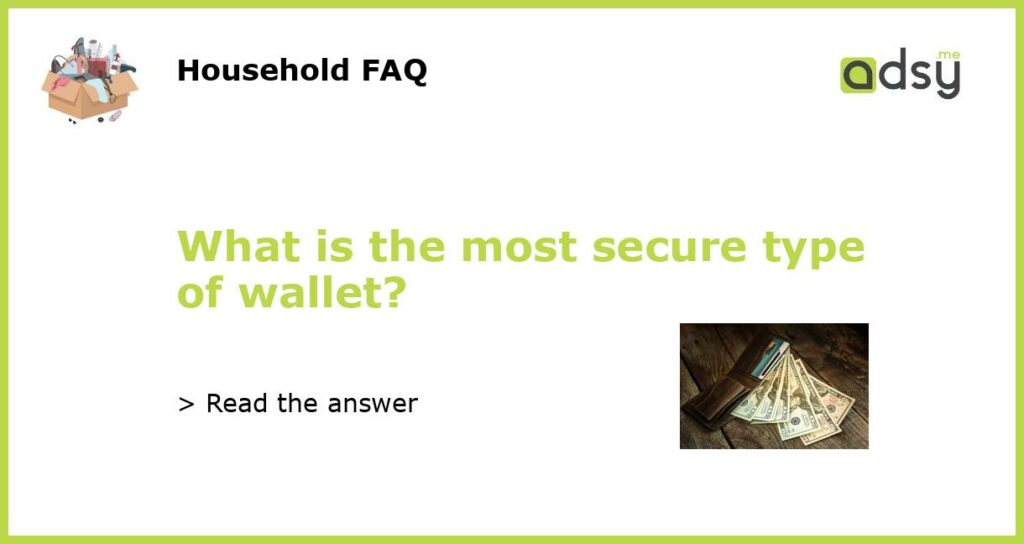Hardware Wallets: The Ultimate Security Solution
When it comes to securing your cryptocurrencies, hardware wallets are considered the top choice. These physical devices provide the highest level of security by storing your private keys offline and protecting them from hackers and malware. With a hardware wallet, your private keys never leave the device, making it virtually impossible for anyone to steal or access your funds without physical access to the device.
Hardware wallets operate offline and require you to manually confirm transactions, ensuring that even if your computer or smartphone is compromised, your funds remain safe. These wallets are equipped with built-in security features like PINs and encryption, providing an extra layer of protection. Examples of popular hardware wallets include Trezor and Ledger.
Paper Wallets: A Low-Tech Alternative
If you prefer a low-tech approach to secure your cryptocurrencies, paper wallets offer a viable option. A paper wallet is a physical printout of your public and private keys, which you generate using a wallet generator on an offline computer. Since paper wallets are completely offline, they are immune to hacking attempts and online vulnerabilities.
To create a paper wallet, you simply generate a new set of keys and print them out on a piece of paper. It is crucial to keep this printout secure, as anyone who gains access to it can take control of your funds. Storing your paper wallet in a safe deposit box or a secure location is highly recommended. It is also advisable to create multiple copies in case one gets lost or damaged.
Offline or Cold Storage Wallets: Keeping Your Keys Offline
Offline or cold storage wallets provide another highly secure option for protecting your cryptocurrencies. These wallets are typically stored on devices that are not connected to the internet, such as a computer that is never connected to the web or a dedicated hardware device. By keeping your private keys offline, you eliminate the risk of online threats and hacking attempts.
One popular example of an offline wallet is Electrum, a software-based wallet that allows you to create and manage your cryptocurrencies on an offline computer. You can then sign transactions using the offline device and broadcast them to the network using a separate online device. This way, your private keys remain secure and protected.
Mobile Wallets: Security on the Go
If you prefer the convenience of accessing your cryptocurrencies on your smartphone while still maintaining a reasonable level of security, mobile wallets are a popular choice. These wallets are software applications that you can download and install on your mobile device, allowing you to manage your funds on the go.
Mobile wallets often encrypt your private keys and store them locally on your device, making them less susceptible to online attacks compared to web wallets. However, since mobile devices can still be vulnerable to malware and hacking attempts, it is essential to choose a reputable and secure mobile wallet.
Examples of popular mobile wallets include Bread (formerly known as Breadwallet) and Edge (previously known as Airbitz). These wallets prioritize security and provide additional features like biometric authentication and multi-signature support.
Web Wallets: Convenience vs. Security
Web wallets, also known as online wallets, are accessible through a web browser and stored on a web server. While they offer convenience and easy accessibility, they are considered less secure compared to other wallet options. The main risk with web wallets is the potential for hacking and phishing attacks, as your private keys are stored online and can be vulnerable to theft.
However, many reputable web wallets prioritize security measures, such as two-factor authentication, encryption, and password management. They also ensure that your private keys are encrypted and stored securely on their servers. Examples of popular web wallets include Coinbase and Blockchain.com. While these wallets offer convenience, it is important to weigh the trade-off between accessibility and security.






